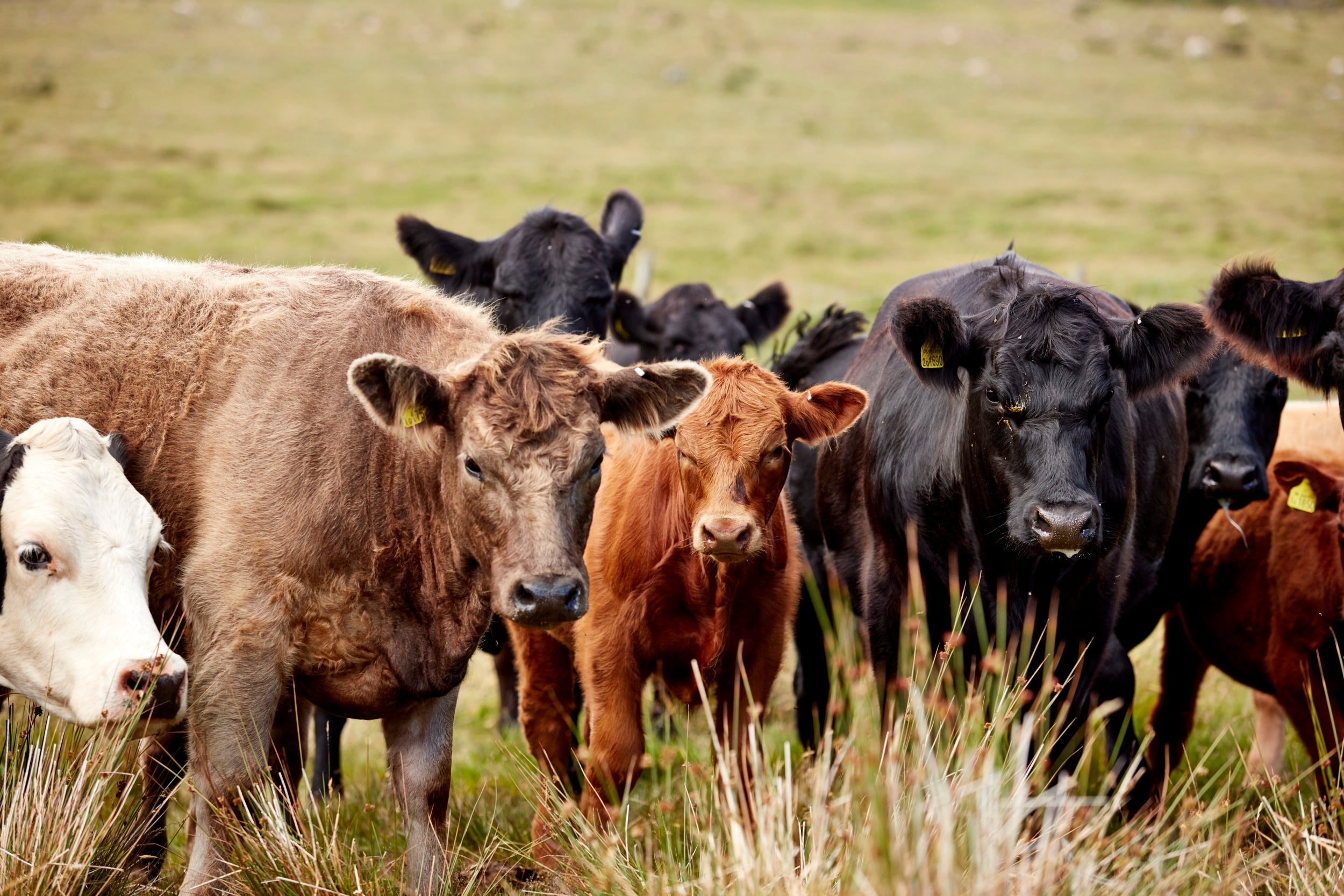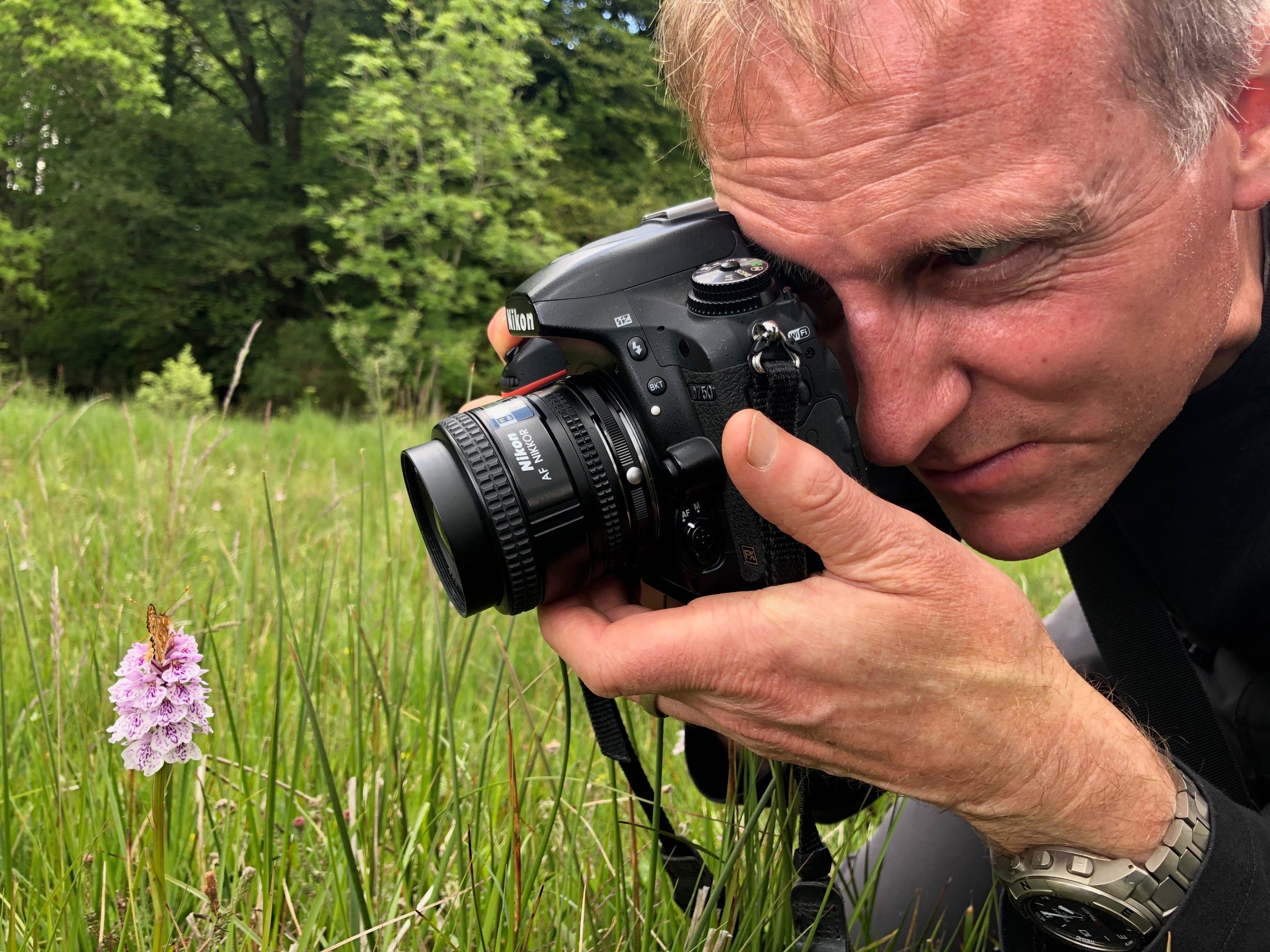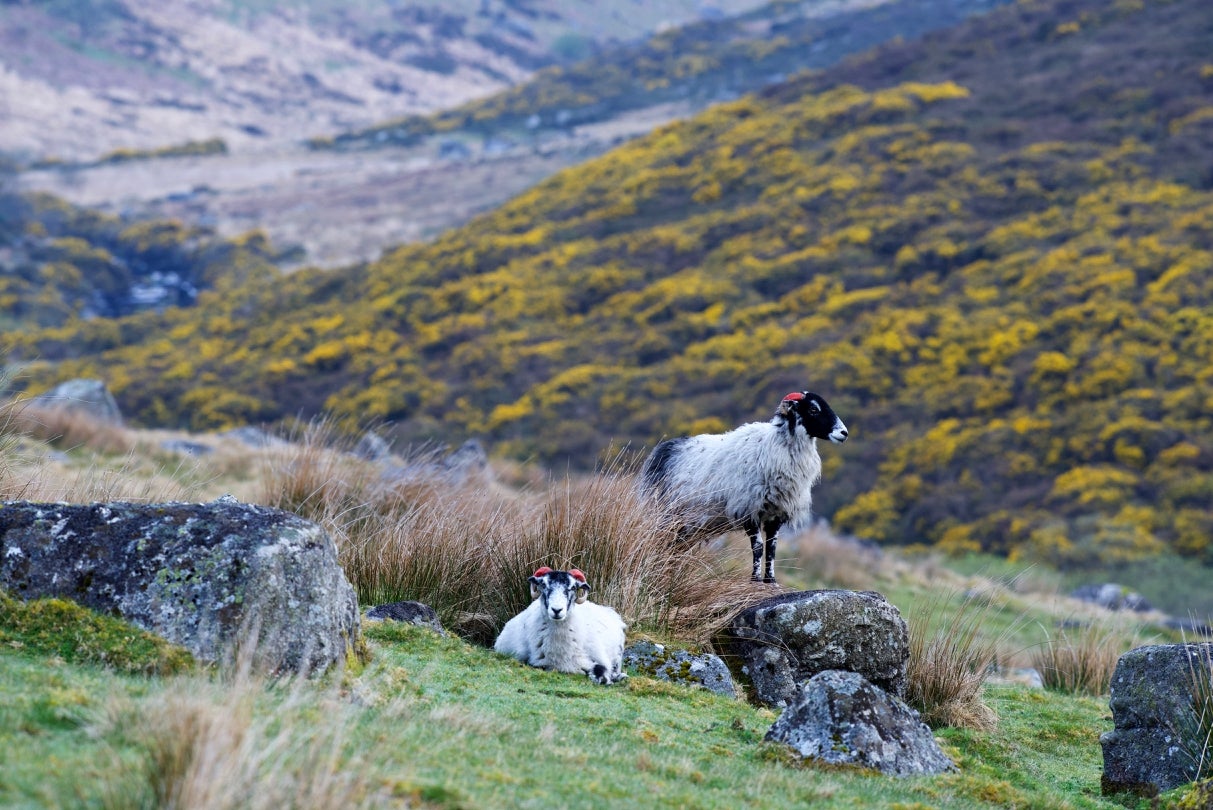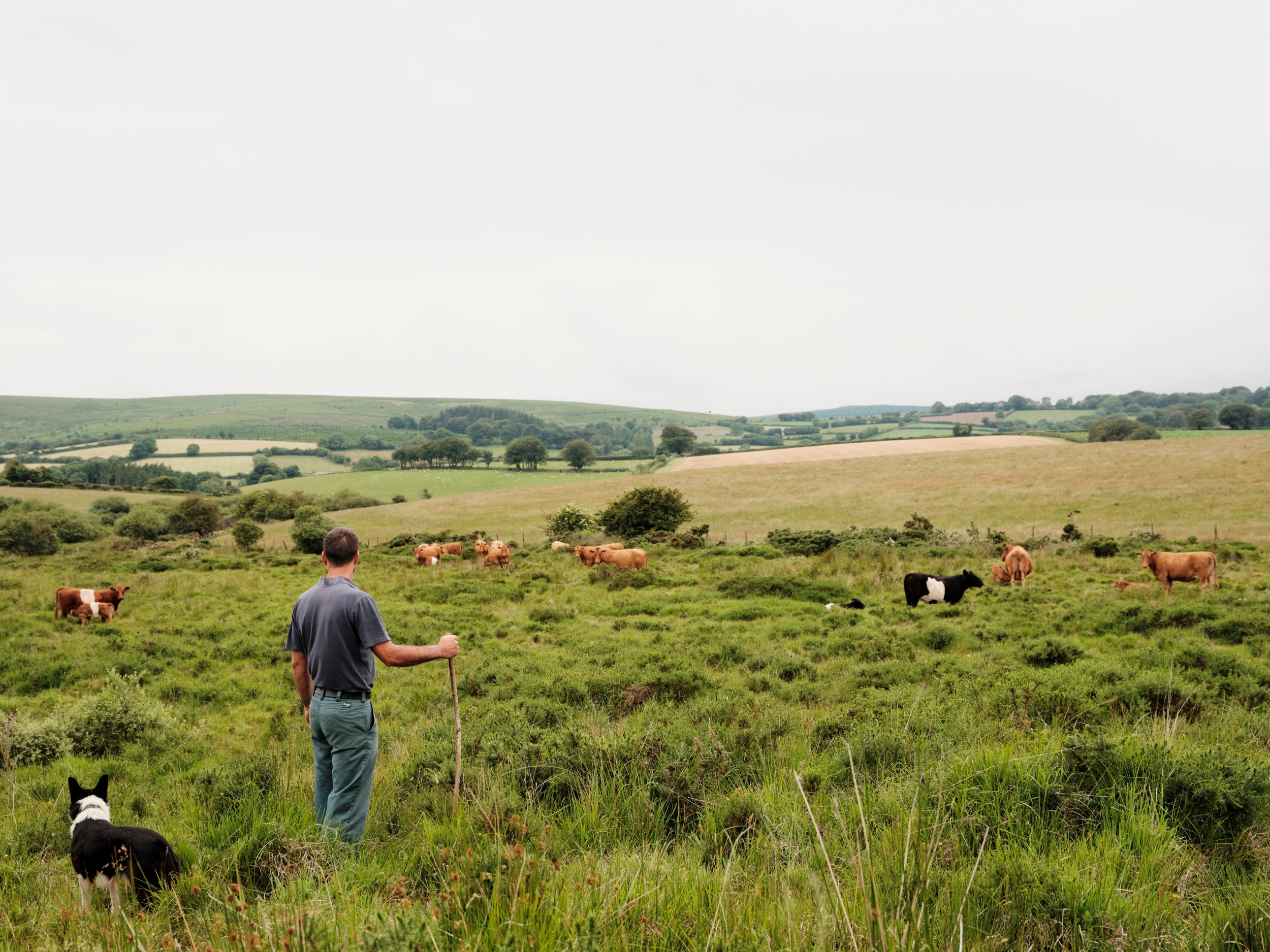The company changing British farming to save wildlife and the planet
Cheap food is destroying the Earth and it’s time we changed. Not everyone needs to go vegan but those who continue to eat meat must eat less, better and more responsibly. Andy Martin speaks to Tim Martin, the founder Farm Wilder, a certification scheme and social enterprise trying to change British farming


Tim Martin went looking for a marsh fritillary butterfly. But he couldn’t find one. It took him a while to work out why. And oddly enough it was all to do with cows.
One thing everyone knows is that cows eat grass. But it would be better to say they eat grasses – plural. Or they do if they can get them. Too much of the time they are forced to graze on acres of rye grass – nice and green, but monocultural, shallow-rooted, and requiring fertiliser and weedkiller to keep it going. They would much rather munch on a variety of different plants, grasses, clover, herbs and legumes, of the kind that used to be provided in abundance by the traditional meadow, and that enables them to self-medicate. The meadow is not only host to between 15 and 20 different species of flora, but is better at warding off drought and flood, because the plants have deeper roots. And it is also good for birds and bees and butterflies.
Which is what led Tim Martin to set up Farm Wilder, a social enterprise that certifies good land-management practices with labelling that advertises “Fritillary Butterfly Beef” and “Cuckoo Friendly Lamb”, thus enabling farmers to charge a fair premium for their eco-friendlier produce. “Cheap food is killing wildlife and the planet,” Martin says.
He’s now 50. But by the age of five, Tim Martin was already a keen ornithologist. He was born in Bulgaria (where his father was a diplomat) but brought up in Shropshire. “I was obsessed with birds. I was not a twitcher: I’d rather see a jay or a woodpecker in my back garden than a pectoral sandpiper through a lens.” He was awestruck by the sheer beauty of the bird, even one as commonplace as a blue tit. His dad had a tripod and a decent camera and young Tim started to take pictures of birds by the time he was seven or eight. He remembers taking one of a spotted flycatcher nesting in the wisteria from his bedroom window. Soon he was getting a “highly commended” from the RSPB Young Ornithologist Club. He went from there to Young Wildlife Photographer of the Year for two years running. He won a BBC competition aged 17 and appeared on Blue Peter, lauded by David Bellamy and Chris Packham.

Martin studied zoology at St John’s College, Oxford, and took pictures of maned wolves in Costa Rica. On graduation he went from photography to wildlife filmmaking, working for the BBC in Bristol. “It was a natural extension,” he says. “I went from, ‘Look at this! Isn’t it beautiful?’ to telling a story.” He’s still filming wildlife for one or two days a week and the rest of his time he dedicates, in a purely voluntary and unpaid way, to Farm Wilder.
Not everyone is going to go vegan. Martin’s approach is to enable the carnivores to keep eating meat in an environmentally responsible way. You eat less in quantity but higher in quality
“I’d been executive producer for 13 years. But I wanted to do something more directly concerned with conservation.” Martin had to witness at close quarters the decline or extinction of various species around the world. “Nothing was stopping it,” he says. “They used to be common, but now you won’t see a cuckoo in the middle of Shrewsbury or Bristol.” Skylarks have plummeted. Hedgehogs are down by 95 per cent. Turtle doves by 97 per cent. And that marsh fritillary butterfly could only be found in one particular place for two or three weeks in the year. Species after species in a death spiral – or at least “in intensive care”. Martin’s initiative is like a one-man Extinction Rebellion.
Except, as he points out, it isn’t one-man: it’s very much a collective effort. “We keep blaming farmers,” he says. “But we mustn’t conflate US/Brazil-style intensive farming with the UK. We need to convert farmers in this country. The British landscape has been farmed for thousands of years. Meadows, that are so good for wildlife, need to be grazed.” Martin draws an important distinction between woodland and meadow. “We have good woodlands. The species that live there are doing ok. It’s farmland wildlife that has struggled.” And this comes down to us, the general public. “If you go into a supermarket and buy cheap beef you’re actively contributing to climate change and pollution and species extinction.”

Not everyone is going to go vegan. Martin’s approach is to enable the carnivores to keep eating meat in an environmentally responsible way. You eat less in quantity but higher in quality. “The way I see it, it’s like electricity: you can have good and bad kinds of meat and dairy.” The key criterion is to have pasture-fed animals, not grain-fed. Feeding grain to ruminants is just a waste of farmland. Better to rear animals (and this includes chickens) on land where they feed naturally. And soya is just chewing up the rainforest. Martin wants UK livestock farming to go completely grain-free.
Modern, industrialised farming has been extractive: it uses up the topsoil, which loses carbon and is vulnerable to erosion. There are parts of Britain, “dead zones”, where the soil is depleted or exhausted. Three million tons of topsoil are lost every year. It’s a finite resource. Ploughing can actually be bad for soil erosion (so the old Harvest Festival hymn, “We plough the fields and scatter”, needs to be replaced with “We plant cover crops and sew the seeds into the mulch”). “The food system is broken from every perspective,” says Martin. We have flooding and climate change. Farmers are struggling and we’re getting more obese. And food is less nutritious. But it is possible to “work with nature, not against nature” to restore soil health and turn farming from a problem into a solution.

Buying organic is positive, but it doesn’t guarantee wildlife (and organic farmers are allowed to use 40 per cent grain in their animal feed). Farm Wilder is beyond organic, a form of “regenerative farming” that aims to increase a more biodiverse habitat and enable farmers to make a living alongside marsh fritillary butterflies. Quietly, there is a revolution going on in agriculture. The “countryside stewardship scheme” pays farmers (around 45p per kilo) to stop the decline. “These meadows are our national treasure” says Martin. But until now farmers who maintain the meadows and woodland have been forced to sell at the same price as those who cultivate pure rye grass with no shade. Now consumers, all those who care about wildlife, can help – by making the right choices and paying slightly more – to support farmers and the countryside and butterflies.
At present Farm Wilder-certified produce can be found online and in selected shops in Bristol, Somerset and Devon. It surely ought to be in Waitrose, Marks and Spencer and Tesco too.
Join our commenting forum
Join thought-provoking conversations, follow other Independent readers and see their replies
Comments